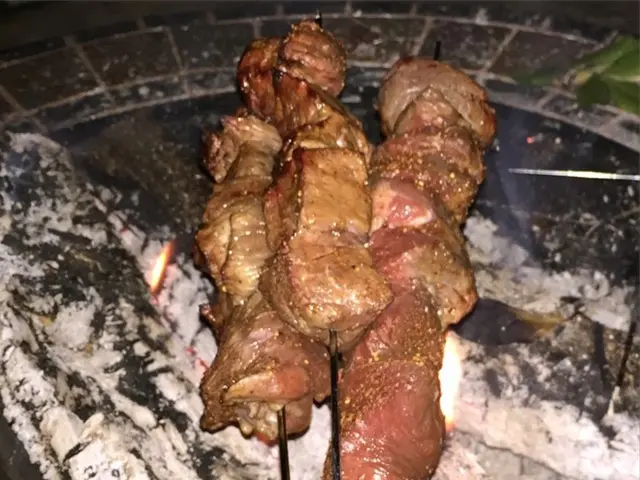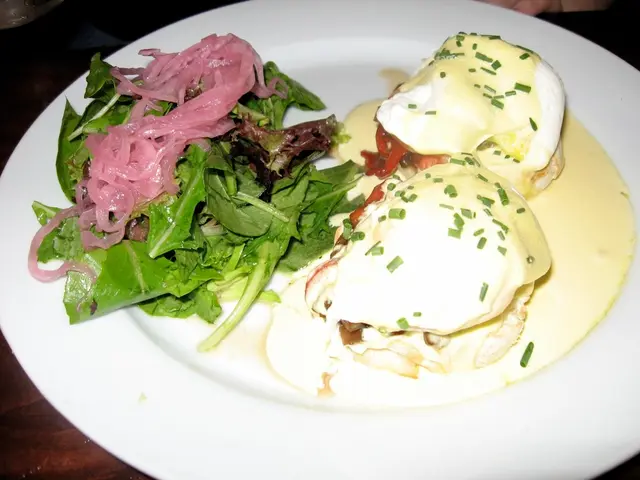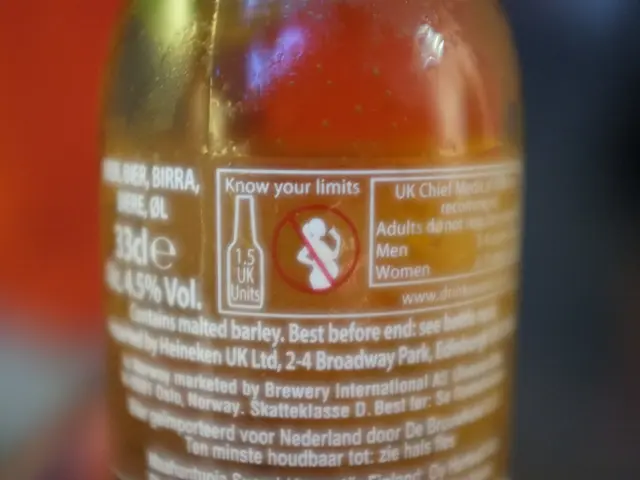"Russia's Ekaterinburg ranks below four other cities in culinary excellence, eliciting civic dismay over Ural’s dining scene."
Transforming the Culinary Landscape: Yekaterinburg's Leap Towards Gastronomic Excellence
Hungering for a gastronomic breakthrough, Yekaterinburg, nestled in the Ural region, yearns for local pride, backing from regional authorities, and the unity of all market participants. To make Ural cuisine a force to be reckoned with nationwide, a collective act of courage is required to solving this culinary puzzle, as all the necessary ingredients are already at the ready. This topic was a hot discussion in a recent interview with our website, hosted by Sergey Miroshnikov, the concept chef at Kitchen (Yekaterinburg) and the mastermind behind the "Authentic Ural Cuisine" project.
Victorious Once AgainThis year you became the reigning champ for the second time, according to the WHERETOEAT Ural award. How did you feel?
- Personally, I remain quite composed in such situations. Being part of the award process is more about working hard than feeling victorious. What bothers me more is the lack of fresh competition and the same names that pop up year after year in the scene.
Clutching the TrophyWinning the nomination doesn't stroke my ego, but Kitchen's triumph was crucial to the scene, not as a way to boast about the medal, but to show others that commitment to local products and sharing the regional narrative yields significant outcomes.
Bronze on the PodiumStill, Kitchen grabbed the third place.
- In Yekaterinburg, bistros reign supreme, thanks to their speedy service and excellent value. And although the WHERETOEAT Ural award is intended for restaurants, the winners are predominantly bistros, which causes a bit of frustration as it's like a motorcycle race being won by a scooter.
Frustrated by the absence of grandeur
There's a pervasive sentiment in the Ural region that Yekaterinburg is a secondary culinary capital of Russia. However, reality is far from this perceived position.
- I spend much of my professional life outside of Yekaterinburg, crisscrossing the nation to promote Ural cuisine, its products. This place is an illusion cherished by locals, who see us as the third after Moscow and Saint Petersburg. Truth be told, Yekaterinburg ranks nowhere close to the top third, let alone the top five.
Deeply DisappointedI'm saddened by this. We possess the tools to climb the charts and deliver a powerful response domestically, but we lack collective audacity. Over the past few years, we've been steadily sliding backwards. We have numerous gifted individuals and promising projects with high standards, but the trend is shifting the wrong way, and the worldwide narrative is unfavorable. We must focus on our regional fare to maintain our competitive edge for years to come.
Thriving CitiesSo who's getting it right?
- Krasnoyarsk, Nizhny Novgorod, and Novosibirsk are shining examples of cities on the right track. Large investments are flowing into the Altai region, and in a few years, it will show its worth.
A significant initiative has been undertaken to develop Norilsk, with generous investments and the arrival of top professionals. The whole city is working on the gastronomy frontier, aiming to drive growth and provide another compelling reason for visitors.
Who Are the Heroes of the Food Industry?When you mention "good guys," are you referring to chefs or restaurateurs?
- Everyone – the Urals are brimming with talents. A wave of young restaurant owners is bringing freshness to the market through instinctive decision-making, however, there's a clear absence of regional pride that prevents the bigger picture from fully materializing.
We should always strive to make our home better, rather than solely focusing on ourselves and our personal corners. We need to think globally and work towards making our city and region more enticing to everyone. There's still a lot of work left in this area. My personal goal is to make people fly, drive, and dine in Ekaterinburg, so they become advocates for our region in other cities.
Photo: AUK
Artistic EndeavorsThe restaurant business is like a work of art, with envy, competition, and a craving for renown. How can creative people accept and collaborate with each other?
- If we're talking about restaurateurs, they tend to view business through a lens of opportunity. The notion of competing is costlier and drains more energy and resources. Everyone chooses their unique tactics – some undercut prices, others lure staff away. Essentially, we're constantly nipping at each other's heels instead of sitting down and ironing out the wrinkles.
The most important lesson I've learned while crafting the AUK project is unity is our strength. Only when we coalesce can our voice carry far beyond the region, becoming a significant force in the industry. We can lead the charge when everyone does their part.
A Voice of UnityWho can be the unifying factor? I doubt everyone will be eager to gather around a table in Kitchen.
- I understand if it appears unfair to discuss the matter in the context of a restaurant, as it may seem self-serving. I'm not seeking personal advancement. I aim to construct a shared home for everyone.
Photo: AUK
The "Authentic Ural Cuisine" (AUK) project may well become a brand and rallying cry under which everyone can unite. It'll be easier to attract chefs, as they can relate to my position, having knowledge that I'm only interested in the matter and not elevating myself. It's more challenging with restaurateurs.
For instance, in Krasnoyarsk, the situation was dire before. The guys didn't communicate with each other at all. But eventually, they realized the importance of unity and pooling resources for joint activities and events. This common objective brought a positive shift, and they now advocate each other's establishments.
Rifts HealedIf the relationships were terrible, how did the Krasnoyarsk people manage to agree?
- If one restaurant group had simply approached another, nothing would have happened. The catalyst was the institution, the branch of "The Higher School of Gastronomy from Institut Paul Bocuse." It's the only one in Russia that started graduating chefs with higher education, international-class chefs-entrepreneurs. Its arrival in the summer of 2020 was a watershed event, attracting culinary enthusiasts from across the nation. This significant turnout was due to the efforts of one restaurant group, in collaboration with government support. And although the director of the educational institution is the co-owner of the said restaurant group, the institute proved to be a neutral platform for all.
These ambitious youngsters expended considerable effort, energy, and personal funds to elevate their region and restaurants. Krasnoyarsk is currently experiencing a gastronomic revolution. Just three years ago, it could barely hold a candle to Saint Petersburg, but now it's more fascinating in some respects. Krasnoyarsk's residents are responsible for generating an incredible flow of events, inviting stars and speakers. There's a tremendous amount of work on maintaining this influx of people, with establishments thriving and popping up one after another, drawing people in to work there.
Authorities' AttentionYou mentioned government support towards gastronomic tourism in Yekaterinburg. Is there any such attention in the region?
- There are some hurdles to overcome. What we currently have is more a product of persistence than active government support. I've given this matter a lot of thought, and it truly bothers me. Yekaterinburg has all the requirements to achieve a far better outcome – talent, product, demand from consumers. Our gastronomic sector isn't developing as swiftly as needed, mainly due to the government's focus on other industries to provide lucrative returns.
I believe the abundance of other concerns is hindering the gastronomic agenda. The government dedicates its efforts mainly to metallurgy, other sectors that generate more revenue. Why set aside budgets for some cuisine when you can strengthen what's already strong and reap even better results?
The only thing I think is that those making these decisions don't fully grasp the importance of food. Show your Ural to any guests arriving for contract signings, holistically, and they'll fall in love with it instantly, eager to provide everything needed.
Food is exceptionally important, not merely the beauty of nature or the power of production. It's an integral part of the cultural cloth of a place, providing an authentic experience that tourists seek. A UK project aims to accomplish this very goal – to let tourists sample Ural cuisine, prompting them to return.
Photo: AUK
Since UK already facilitates experiences unique to Yekaterinburg, the main value proposition is its ability to deliver culinary experiences unlike anything found elsewhere. Imagine the impact if not ten, but a hundred or two hundred were involved? If the development of Ural cuisine had investments beyond the personal funds of a few chefs, and the reach was broader as well, the project would have made far more progress. That's why I started "Ural Shanga."
Jam MiracleYou've waited in line for it many times, and it's delicious. Is this your business endeavor?
- Yes, it's a partnership, with my colleague handling the technical and strategic aspects. Last year saw the declaration of the "Year of Shanga," setting a goal to bring shanga to the people, promote it at various events, and establish a new culinary brand for the region.
Shanga's AppealWhy shanga?
- There was a lack of a clearly defined entity before. With the arrival of a significant event, it was time to move to the next level. The quickest way to connect with local cuisine is through widespread availability, making it achievable for many. Street food and festivals are some of the most effective vehicles to disseminate regional fare.
Over the summer in 2023, we were in attendance at numerous festivals. Our street food offering garnered the award for Russia's best street food at the Russian Street Food Awards in Kaliningrad. Now it's time to make Ural shanga street food, so that the question on everyone's lips becomes, "shawarma or shanga?" and the choice is always the second.
Photo: AUK
Expansion PlansCurrently, there's only one shanga point near Lenin and the Polzunov College. To have shanga readily available on the streets, we need more locations. Will there be expansion?
- The vision is grand – plans call for the opening of fifteen points in Yekaterinburg.
When can we expect this?
- It all depends on you – how often you visit!
If shanga was readily available everywhere, I'd buy it frequently. My favorites are – smoked chicken with sea buckthorn sauce, potatoes with mushrooms, beef with horseradish, and so on.
- A crucial aspect is the affordability of shanga, ensuring that everyone can sample it. It's challenging to sustain the ultra-low price of 350 rubles per piece, but we'll make every effort to do so. Soon, another project featuring different fillings, targeting the higher price segment, will open, situated within food courts.
Launching the FranchiseHave you calculated the rough cost of launching a street food franchise, excluding luxury? And where can those interested in joining the fourteen lucky ones sign up?
- You can get in touch with me directly. At the moment, there isn't a central production facility, but one is being built where all products will be prepared and packaged. No calculations have been made, only preliminary considerations. More details will be available in a few months, as it's still too early to discuss this.
Rough Cost EstimateAt least, can you give a ballpark figure?
- Close to 5 million rubles.
Will the franchise only develop in Yekaterinburg, or will it expand to other Ural cities?
- I think we could expand beyond Yekaterinburg as well, into other Ural cities. Frankly, the thought of the "shangha" embracing flavors from across the country has crossed my mind. We'll survey how things develop in Yekaterinburg first. But it's already clear that the public is hungry for change and tired of the norm. People are becoming increasingly health consciousness, seeking food that's natural, high-quality, and regional.
- Chef Sergey Miroshnikov vocalized his concerns about the lack of fresh competition and the same names continuously emerging in the culinary scene.
- Despite Kitchen's victory in the WHERETOEAT Ural award, there's a sense of frustration in Yekaterinburg as it strives for recognition as a primary gastronomic capital of Russia instead of being perceived as a secondary one.
- Chef Sergey Miroshnikov believes that collective audacity and focusing on regional fare are essential to maintaining Yekaterinburg's competitive edge in the food and drink industry, and to propel it to the top of the nation's culinary landscape.








